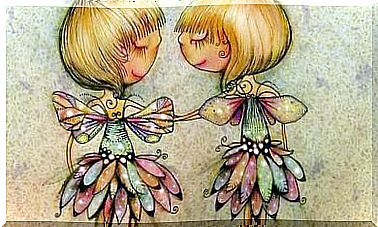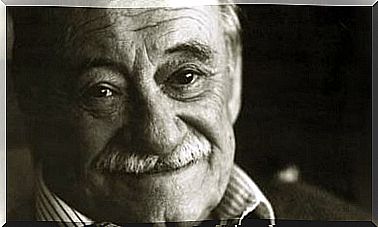Being Understanding With Oneself Is An Art

It is often difficult to be understanding with oneself, rather, one tends to be critical and harsh in evaluating oneself, especially when one believes that one has a flaw or a lack. We treat ourselves badly and mercilessly when we make a mistake, thinking that it can serve to improve. But the truth is, the opposite is achieved in the end.
To grow, there is an alternative to this excessive self-criticism: self-compassion. It means treating yourself more kindly, recognizing what you have in common with others, but also accepting your limitations.
According to the American psychologist Cristin Neff, one of the most important researchers in this field, self-compassion, and therefore being understanding with oneself , involves three fundamental aspects : goodness towards oneself, recognition of humanity in common and awareness. Let’s see in more detail what each of these aspects consists of.

Being understanding with yourself: kindness
Having feelings of affection for oneself not only produces changes in the mind but also in the body. When we ease our pain, we set the mammalian attachment system in motion.
One of the most important functions of this system is to release oxytocin, a hormone that increases the sense of trust and feelings of peace, security, generosity and bonding, as well as stimulating the ability to feel affection and compassion for oneself.
Marshall Rosenberg, author of Nonviolent Communication , stresses the importance of using empathic and non-critical language in speaking to oneself. In a sense, it corresponds to treating yourself well, as it suggests not resorting to criticism and adopting an understanding attitude.
Recognize humanity in common
The feeling of compassion arises from recognizing that human experience is imperfect. Being understanding with yourself means understanding that we can all be wrong.
When we are in touch with our humanity, we also remember that suffering is shared. We all suffer or feel pain at some point in our life.
Being understanding with yourself does not mean feeling pity. Self-compassion leads to a better understanding of the situation, in a more friendly way, and pushes you to find better solutions for your personal growth.
Tara Brach explains: “The feeling of having no merit goes hand in hand with feeling separated from others, isolated from life. If we consider ourselves imperfect, how can we feel complete? It is a vicious circle: the more we feel useless, the more we feel isolated and vulnerable ”.
Feelings that bind us to others, such as goodness, activate the attachment system. People who feel in tune with others generally don’t fear too much of adverse circumstances and respond more flexibly to life’s challenges.

Cultivate full awareness
The third key to being more understanding with yourself is awareness or mindfulness. Living in the present, with acceptance and without judgment, leads us to have a clearer vision of our suffering.
Practicing mindfulness helps us to understand how we feel and to recognize emotions and thoughts for what they are, without letting ourselves be defined by them.
It is about observing what happens in our field of consciousness in the here and now. Allowing us to understand that thoughts about the past and the future are exactly that: thoughts.
Mindfulness also provides us with the tools to respond to different situations in life starting from a state of calm and relaxation. Thanks to this, we will avoid overreacting, without causing consequences that we may regret in the future.
As you can see, being understanding with yourself equates to a constant exercise of kindness and goodness towards yourself, which should not be limited to a specific moment, but rather become a life-long attitude.









